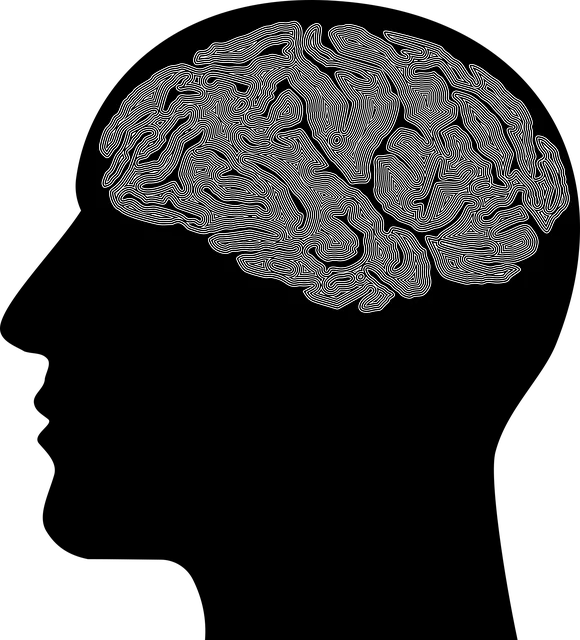Broomfield Kaiser Permanente's behavioral health services prioritize resilience through the RFM (Risk, Frequency, Magnitude) framework, integrated into workshops and mindfulness practices. This structured approach equips mental health professionals and patients with tools to manage stress and difficult emotions, fostering emotional well-being and personal growth. By setting clear metrics and assessing program impact, the center ensures continuous improvement in burnout prevention and mental wellness for both patients and healthcare workers.
Resilience is a key factor in navigating life’s challenges, making concepts like RFM (Recovery, Flexibility, and Mastery) invaluable tools for enhancing mental well-being. This article explores how Broomfield Kaiser Permanente Behavioral Health integrated RFM principles through targeted exercises, significantly improving patient outcomes. We’ll delve into their implementation strategy, highlighting successful measurement techniques and continuous improvement practices. Discover how this approach has positively impacted the lives of numerous individuals within the behavioral health facility.
- Understanding RFM and Its Role in Resilience Building
- Implementing RFM Exercises at Broomfield Kaiser Permanente Behavioral Health
- Measuring Success and Continuous Improvement
Understanding RFM and Its Role in Resilience Building

Resilience is a critical component of overall well-being, especially for mental health professionals who often face high-stress situations daily. Understanding RFM (Risk, Frequency, and Magnitude) is a powerful tool in building resilience. This framework helps individuals assess their exposure to potentially traumatic events, enabling them to develop effective coping mechanisms. By analyzing the risk factors, frequency of occurrences, and the magnitude or intensity of these events, professionals can create tailored strategies to enhance their emotional regulation skills.
At Broomfield Kaiser Permanente behavioral health services, the RFM model is utilized in various resilience-building exercises. These include workshops on stress management and mindfulness meditation, which teach individuals how to recognize triggers, manage intense emotions, and foster a sense of calm. The goal is to equip mental health professionals with tools to navigate challenging situations, ensuring they can provide optimal care while maintaining their own emotional well-being, as emphasized in Risk Management Planning for Mental Health Professionals.
Implementing RFM Exercises at Broomfield Kaiser Permanente Behavioral Health

Broomfield Kaiser Permanente Behavioral Health has recognized the importance of implementing Resilience, Flexibility, and Mastery (RFM) exercises to enhance the well-being of its patients. With a focus on mental health services, this healthcare provider aims to equip individuals with effective tools for managing stress, anxiety, and difficult emotions. The RFM approach offers a structured framework that promotes resilience by teaching practical skills to cope with life’s challenges. Through various exercises, patients at Broomfield Kaiser Permanente can learn to navigate conflicts, improve self-esteem, and boost their overall confidence.
By incorporating these exercises into therapy sessions, the behavioral health team creates a supportive environment where individuals can explore and develop personal growth. The RFM model encourages active participation, fostering a sense of agency and empowerment. This strategic implementation supports not only short-term recovery but also long-lasting mental resilience, enabling patients to lead more fulfilling lives.
Measuring Success and Continuous Improvement

Measuring Success and Continuous Improvement play a pivotal role in the effective implementation of RFM (Resilience, Flexibility, and Mindfulness) exercises at Broomfield Kaiser Permanente’s behavioral health center. By establishing clear metrics, the program’s impact can be accurately evaluated, ensuring that resources are allocated optimally to address areas of need. This data-driven approach allows for a tailored strategy that supports both individual growth and collective resilience within the healthcare team.
Regular assessments and feedback loops foster an environment conducive to learning and adaptation. The behavioral health team at Broomfield Kaiser Permanente can leverage these insights to refine their RFM practices, integrating successful strategies into daily operations. This ongoing cycle of evaluation promotes not only Burnout Prevention but also enhances Mental Wellness for both patients and healthcare workers alike. Through such continuous improvement, the center aims to create a resilient ecosystem that effectively manages Stress Management, ultimately elevating the overall quality of care provided.
The implementation of RFM (Resilience, Flexibility, and Mindfulness) exercises at Broomfield Kaiser Permanente Behavioral Health has shown significant benefits in enhancing resilience among patients. By integrating these practices into their programs, the facility has experienced improved emotional well-being, better stress management, and increased coping mechanisms for its clients. This approach not only complements traditional therapy but also empowers individuals to navigate life’s challenges more effectively. As Broomfield Kaiser Permanente Behavioral Health continues to prioritize mental health initiatives, further research and adaptation of RFM techniques can lead to even greater outcomes, potentially benefiting a larger number of people in need.





